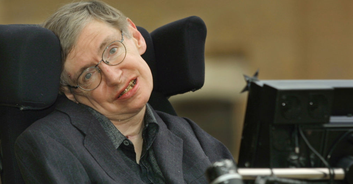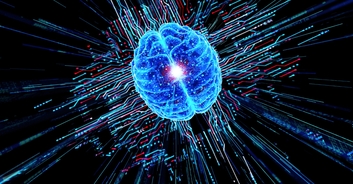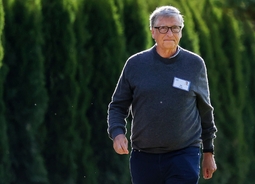Before his death, Stephen Hawking had a warning for humanity and it seems more relevant now than ever.
Hawking passed away in 2018, with his death being a huge loss to both humanity and science.

The renowned physicist's insights into black holes, the Big Bang, and the formation of the universe have been critical to our understanding of the world.
However, before he died, Hawking made a number of worrying predictions about humanity's future, and how technology, if left unchecked, could spell doom for our own species.
In 2014, during an interview with the BBC, Hawking issued a stark caution about the potential dangers of artificial intelligence (AI).
He stated: "The development of full artificial intelligence could spell the end of the human race."
Hawking predicted that AI would eventually surpass human intelligence... which seems worryingly apt right now.
Recent advancements in AI have indeed shown the technology's vast potential.
AI is constantly advancing and has integrated itself into our daily lives whether we like it or not.
Hawking elaborated on his concerns, warning that AI "would take off on its own, and re-design itself at an ever-increasing rate. Humans, who are limited by slow biological evolution, couldn't compete, and would be superseded."

In 2015, Hawking joined 100 experts in signing an open letter to the United Nations, urging the global community to regulate AI development.
Among the signatories was Elon Musk, the founder of SpaceX, who has also been vocal about the need for stringent AI controls.
One year before his death, in a 2017 interview with Wired magazine, Hawking reiterated his fears, stating: “I fear AI may replace humans altogether."
In his posthumously published book, Brief Answers to the Big Questions, Hawking painted a vivid picture of the potential future, where machines could far surpass human intelligence.
"We may face an intelligence explosion that ultimately results in machines whose intelligence exceeds ours by more than ours exceeds that of snails," he wrote.
Hawking cautioned against dismissing the idea of highly intelligent machines as mere science fiction, warning that doing so could be "our worst mistake ever."

Unrelated, but in a collection of essays, Hawking was also concerned about rates of obesity and heart disease in the mostly sedentary first world, writing: "At the moment humanity faces a major challenge and millions of lives are in danger.
"I see the world as a whole and I am here to address one of the most serious public health problems of the 21st century. Today too many people die from complications related to weight and obesity. We eat too much and move too little.
"Fortunately, the solution is simple: More physical activity and change in diet. is not rocket science and for what its worth, how being sedentary has become a major health problem is beyond my understanding."
So in short, we must keep an eye on AI while also ensuring we stay healthy.





